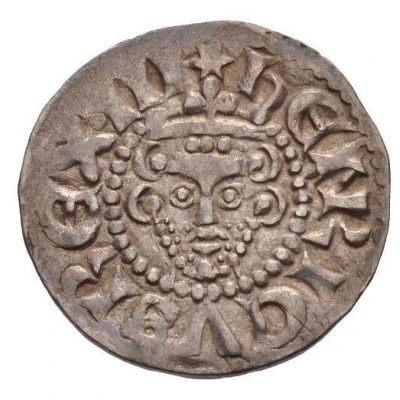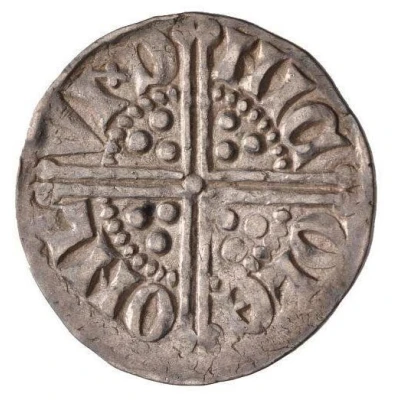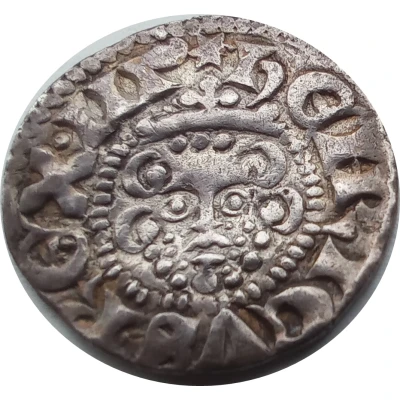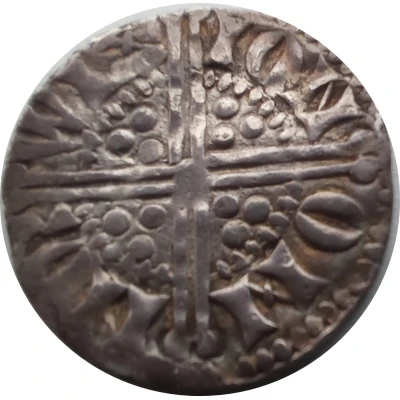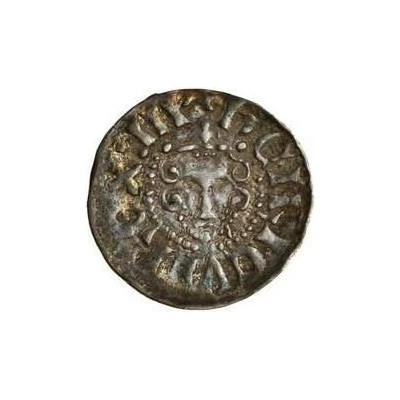
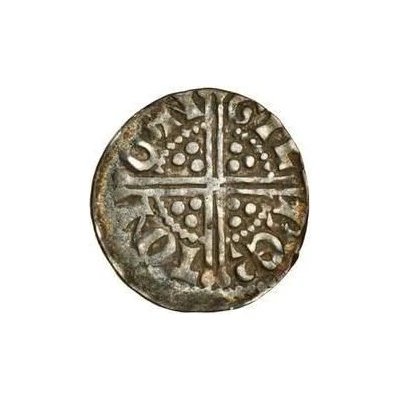

© Spink and Son
1 Penny - Henry III Long Cross type; class 3a2 ND
| Silver | 1.41 g | 18 mm |
| Issuer | England (United Kingdom, British Overseas Territories and Crown Dependencies) |
|---|---|
| King | Henry III (1216-1272) |
| Type | Standard circulation coin |
| Years | 1248-1249 |
| Value | 1 Penny (1⁄240) |
| Currency | Pound sterling (1158-1970) |
| Composition | Silver |
| Weight | 1.41 g |
| Diameter | 18 mm |
| Shape | Round (irregular) |
| Technique | Hammered |
| Demonetized | Yes |
| Updated | 2024-10-08 |
| Numista | N#322758 |
|---|---|
| Rarity index | 94% |
Reverse
Long voided cross with three pellets in each quarter, moneyer and mint name around.
Script: Latin (uncial)
Lettering: GIL BЄR TON CAN
Lettering (regular font): GIL BЄR TON CAN
Translation: Gilbert of Canterbury
Comment
House of Plantagenet (1154-1399), Henry III (1216-1272), Long cross coinage (1247-79), Phase II (Provincial), Class 3a2.Mintmark 3: thicker 6-pointed star, struck at London and provincial mints, 1248-49. For more details visit Rod Blunt's website here.
By the middle of Henry's reign the Short Cross coinage in circulation was in a poor state and, in 1247, a new coinage was ordered with the cross on the reverse extended to the edge of the coin in an attempt to prevent clipping. The earliest coins (1a) showed the names of neither the mint nor the moneyer. Class 1b includes the name of the mint and from Class 2 onwards all coins show the name of both the mint and the moneyer.
Interesting fact
One interesting fact about the 1 Penny - Henry III (Long Cross type; class 3a2) ND (1248-1249) coin is that it features a unique design element known as a "long cross" on the reverse side, which gives the coin its name. This design element is a cross with extended arms and is surrounded by a circle of pellets. The long cross was used on coins during Henry III's reign to differentiate them from earlier coins that had a shorter cross. This design change was made to combat counterfeiting and to ensure that the coins were easily identifiable as authentic.
